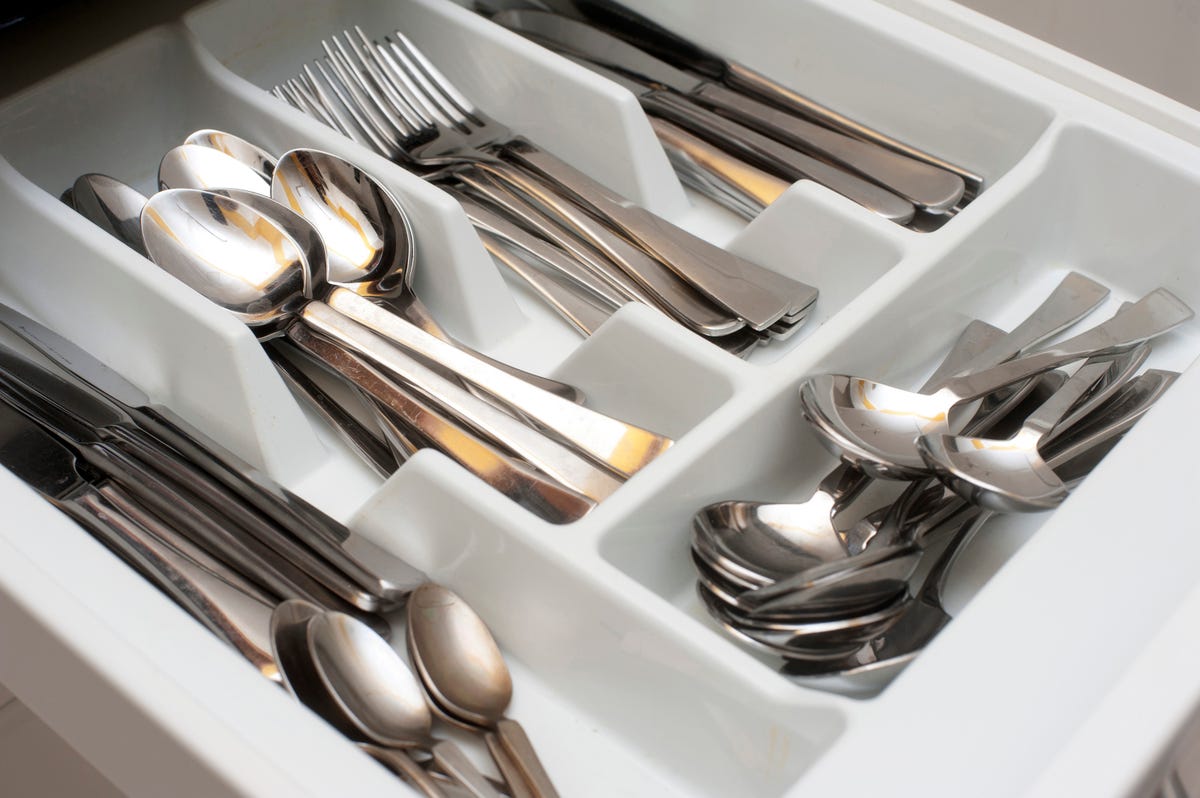Yes, You Should Deep Clean Your Silverware. Here’s How – CNET
Our forks and spoons are the most important gear in our kitchen to keep clean. What other piece of cookware goes directly into our mouths? (Repeatedly. Several times a day.) So, it raises the question: Just how clean are you getting your everyday silverware? Whether you have a dishwasher or employ regular handwashing, are you sure you’re actually getting all the debris from between the tines of the fork? What about individual rice grains, adhesive egg yolk or crusted-on sauce?
And what about mineral buildup, or rust on your silverware? While miniscule amounts of these elements are probably harmless, according to the US Department of Agriculture, rust is not considered food safe and it can flake off and be ingested, so why risk it?
At the very least it’s worth giving your silverware a little extra attention the next time you load the dishwasher or fill the sink with suds, and you may want to consider deep cleaning it every once in a while. I spoke to a cleaning expert, Toby Schulz, CEO and founder of Maid2Match, for his best advice on making sure you’re getting your everyday silverware as clean as it can be.
Hand washing is best

Here’s all the artillery you’ll need to get dirty silverware sparkling again.
For best hand-washing results, “remove visible food debris like dried sauce or stuck-on rice to prevent any build-up or risk of mold,” said Schulz. “Also, use soft-bristled tools or non-abrasive sponges, as abrasive cleaners such as scouring powder, can scratch or tarnish the finish.” Forks especially have the capacity to harbor bits in their numerous spaces, so make sure you’re being thorough but gentle when getting between the tines.
Soaking isn’t doing you any favors, either, and isn’t a useful substitute for proper handwashing. “You shouldn’t soak your silverware for a long time, as this risks rust,” said Schulz, which is probably not something you’re regularly inspecting for, especially in your forks’ smallest surfaces.
Dishwasher success

Dry your silverware well before putting it away.
This last point is probably the one that none of us are regularly doing — dishwasher users or hand washers both — but it’s an especially important one for keeping silverware in its best and cleanest condition.
“You should always dry your silverware immediately after washing to prevent water spots or mineral deposits from hard water,” said Schulz, no matter what method you use to clean it. “Store in a cool, dry place,” he said. “Improper storage can also lead to tarnish and a build-up of dust.” A dedicated silverware drawer is best. That’s bad news for those who enjoy the country charm of keeping your silverware in an open tin or crock on a countertop, but that risks the possibility of not only dust, but cooking grease and humidity also having its way with your silverware.
